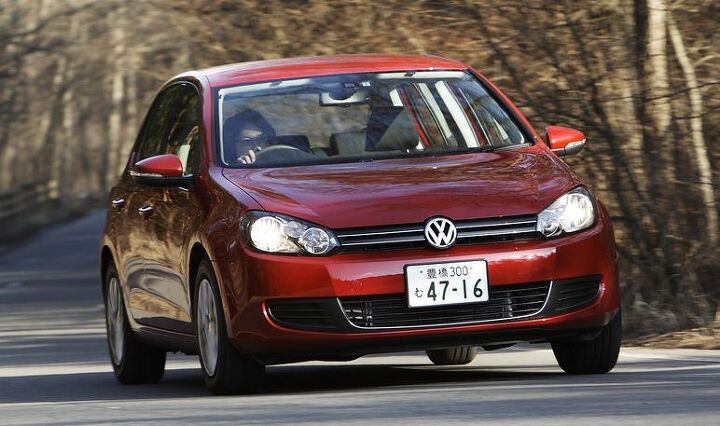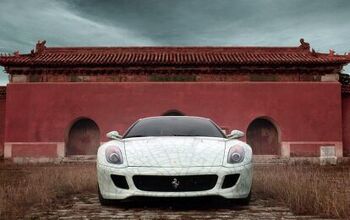Imported Cars Have A Record Year In Japan
Sales of imported cars set a 17 year record in Japan, with brands like Maserati and Volkswagen leading the way, with Bloomberg reporting that non-Japanese brands captured 8.8 percent of non-key car sales – the highest figure since records started being kept in 1989.
Mercedes and Maserati both had record setting years in Japan, while the VW Golf was the best-selling non-Japanese car, ranking 27th overall. The VW Up! is also said to be stealing sales away from kei car shoppers, and the trend of smaller imported cars appears to be a welcome one for Japanese consumers.
Previously, most European brands imported big, expensive luxury sedans, attainable only to the upper strata of Japanese society. Many of these examples were also left-hand drive, which was considered to be a status symbol by many, in the way that a right-hand drive car has enthusiast cachet in North America (and an inconvenience as well – which was arguably part of the appeal).
But the Golf and Up! have demonstrated demand for smaller, imported premium vehicles, and other brands have been following suit. Mercedes is set to begin sales of the A-Class compact hatchback, while Volvo’s V40 small hatch is the brand’s best selling vehicle.
Nevertheless, it’s unlikely that imported vehicles will ever make up a big part of auto markets in Japan. Despite talk of non-tariff barriers and other obstacles, there are significant cultural hurdles to overcome. Certain American vehicles (like muscle cars and large custom vans) have a following among Japanese enthusiasts, but for the vast majority of consumers, American cars are simply too big and too thirsty for Japan. Witness the boom in European vehicles, which didn’t take off in earnest until smaller vehicles became available. Among Japanese auto makers, kei cars are the dominant segment, with smaller cars taking up most of the non-kei share.
Beyond that, Japan is a society where conformity, not individual expression, is considered a virtue. “The nail that sticks up gets hammered down”, is a constant refrain in discussions of Japanese management culture, and what better way to stand out than by buying a vehicle made by the opposing team? Based on that alone, it’s reasonable to conclude that talk of closed markets and non-tariff barriers are secondary
More by Derek Kreindler
Latest Car Reviews
Read moreLatest Product Reviews
Read moreRecent Comments
- Jor65756038 As owner of an Opel Ampera/Chevrolet Volt and a 1979 Chevy Malibu, I will certainly not buy trash like the Bolt or any SUV or crossover. If GM doesn´t offer a sedan, then I will buy german, sweedish, italian, asian, Tesla or whoever offers me a sedan. Not everybody like SUV´s or crossovers or is willing to buy one no matter what.
- Bd2 While Hyundai has enough models that offer a hybrid variant, problem has been inadequate supply, so this should help address that.In particular, US production of PHEVs will make them eligible for the tax credit.
- Zipper69 "At least Lincoln finally learned to do a better job of not appearing to have raided the Ford parts bin"But they differentiate by being bland and unadventurous and lacking a clear brand image.
- Zipper69 "The worry is that vehicles could collect and share Americans' data with the Chinese government"Presumably, via your cellphone connection? Does the average Joe in the gig economy really have "data" that will change the balance of power?
- Zipper69 Honda seem to have a comprehensive range of sedans that sell well.


































Comments
Join the conversation
Chickentaxers are the auto blog equivalent of birthers!
Hello I think,this gonna change our world and creat a new modern japenese world, We european japan car import, Its been also record most japen cars imported here in Uk.I have also bought japen car from the local UK import dealer.